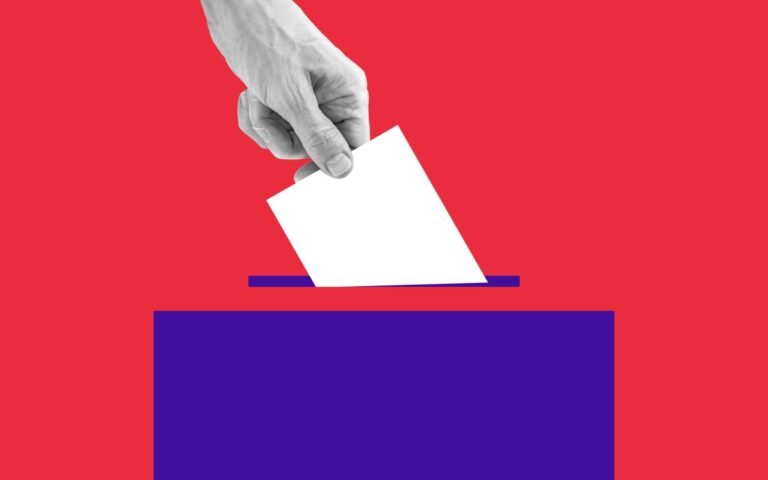The European Union revealed draft election safety pointers on Tuesday concentrating on round two dozen (bigger) platforms with greater than 45 million month-to-month energetic customers regionally which are regulated below the Digital Companies Act (DSA) and due to this fact have a authorized responsibility to mitigate systemic dangers. Comparable to political deepfake whereas defending primary rights like freedom of expression and privateness.
Platforms throughout the scope embody the likes of Fb, Google Search, Instagram, LinkedIn, TikTok, YouTube and X.
The Fee has recognized elections as one of many few precedence areas within the day by day utility of the Residency Legislation to so-called Very Giant On-line Platforms (VLOPs) and Very Giant On-line Search Engines (VLOSEs). This subset of firms topic to DSA oversight are required to determine and mitigate systemic dangers, akin to data manipulation concentrating on democratic processes within the area, in addition to adjust to the total on-line governance system.
In accordance with the EU Election Safety Directive, the bloc expects regulated tech giants to step up their recreation in defending democratic votes and deploy assets able to moderating content material within the a number of official languages used throughout the bloc – guaranteeing they’ve adequate employees out there to successfully reply to dangers. Rising. From the stream of data on their platforms and appearing on stories supplied by third-party fact-checkers – with the danger of hefty fines for dropping the ball.
It will require platforms to strike a cautious stability in the case of moderating political content material — with out dropping sight of their means to tell apart between, for instance, political satire, which ought to stay on-line as protected freedom of expression, and malicious political disinformation, which could hope Their creators to affect voters and deform elections
Within the latter case, the content material falls throughout the DSA’s classification of systemic dangers that platforms are anticipated to rapidly detect and mitigate. The EU customary right here requires that “affordable, proportionate and efficient” mitigation measures be put in place for dangers related to electoral processes, in addition to that different provisions related to content material moderation and the group of administration are broadly revered.
The Fee has been engaged on the election pointers at a fast tempo, launching a session on a draft model solely final month. The sense of urgency in Brussels stems from the upcoming European Parliament elections in June. Officers stated they’d stress the readiness of the testing platforms subsequent month. So the EU would not appear prepared to go away platforms’ compliance to probability, even with a troublesome regulation that means tech giants danger large fines in the event that they fail to satisfy the Fee’s expectations this time round.
Person controls for algorithmic feeds
Among the many EU election directives aimed toward main social media firms and different main platforms is that they have to give their customers a significant selection over their algorithmic and AI-powered suggestion techniques – to allow them to train some management over the kind of content material they see. .
“Recommender techniques can play an vital position in shaping the data panorama and public opinion,” the rules word. “To mitigate the dangers that these techniques could pose in relation to electoral processes, [platform] Service suppliers ought to… think about: (1) Be sure that recommender techniques are designed and modified in a manner that provides customers significant decisions and controls over their feeds, with due regard to the variety and plurality of media.
Suggestion techniques on platforms must also comprise measures to scale back the labeling of election-targeted misinformation, primarily based on what the steering describes as “clear and clear strategies”, akin to misleading content material that has been fact-checked as false; and/or posts from accounts repeatedly discovered to be spreading misinformation.
Platforms should additionally deploy mitigations to keep away from the danger of their suggestion techniques spreading AI-driven disinformation (also called political deepfakes). They need to additionally proactively consider their suggestion engines for dangers associated to electoral processes and roll out updates to mitigate dangers. The EU additionally recommends transparency across the design and operation of AI-based feeds; It urges platforms to interact in adversarial testing, redundancy, and so forth. to reinforce their means to detect and suppress dangers.
Concerning GenAI, the EU recommendation additionally urges watermarking on artificial media – noting the bounds of technical feasibility right here.
The really useful mitigation measures and finest practices for bigger platforms within the 25 pages of draft steering revealed right this moment additionally define an expectation that platforms would require inside assets to deal with particular election threats, akin to upcoming election occasions, and put operations in place. To change related data and analyze dangers.
The resourcing course of will need to have native experience
The Steering emphasizes the necessity to analyze “native context-specific dangers”, in addition to to gather Member State particular/nationwide and regional data to assist the work of entities chargeable for designing and calibrating danger mitigation measures. And as for “ample assets for content material moderation,” with native language means and data of nationwide and/or regional contexts and specificities – a long-standing EU grievance in the case of platforms’ efforts to scale back the danger of disinformation.
One other suggestion is to strengthen inside processes and assets round every election occasion by making a “clearly outlined, devoted inside staff,” previous to the electoral interval – with assets commensurate with the particular dangers of the election in query.
EU pointers additionally explicitly advocate hiring employees with native expertise, together with language data. Whereas platforms have usually sought to repurpose a central useful resource – with out at all times in search of devoted native experience.
“The staff ought to cowl all related experience together with areas akin to content material moderation, reality checking, risk disruption, hybrid threats, cybersecurity, disinformation, and FIMI.” [foreign information manipulation and interference]Basic rights, public participation and cooperation with related exterior specialists, for instance with European Digital Media Observatory (EDMO) facilities and unbiased fact-checking organisations.
The directive permits platforms to leverage assets round particular election occasions and demobilize groups as soon as voting is over.
The report notes that the durations throughout which extra danger mitigation measures could also be wanted are prone to differ, relying on the extent of danger and any EU member state’s guidelines on elections (which may differ). However the committee recommends that mitigation platforms be deployed and operated not less than one to 6 months earlier than the election interval, and proceed for not less than one month after the election.
Unsurprisingly, the best mitigations will likely be carried out within the run-up to an election, to handle dangers akin to misinformation concentrating on voting procedures.
Hate speech in context
The EU usually advises platforms to depend on different present pointers, together with the Code of Follow on Disinformation and the Code of Conduct on Countering Hate Speech, to determine finest practices for mitigation measures. However it states that they have to make sure that customers are supplied with entry to official details about electoral processes, akin to banners, hyperlinks and pop-ups designed to direct customers to official election data sources.
“In mitigating systemic dangers to the integrity of elections, the Fee recommends that due consideration even be given to the impression of measures to handle illegal content material akin to public incitement to violence and hatred to the extent that such illegal content material could disincentivize or silence voices in a democratic society.” “Dialogue, particularly these representing weak teams or minorities,” the committee wrote.
“For instance, types of racism, gender misinformation and gender-based violence on-line together with within the context of violent extremist or terrorist ideology or FIMI concentrating on the LGBTIQ+ group can undermine open democratic dialogue and debate, and improve social division and polarization. On this regard, the Code of Conduct on Combating Illegal On-line Hate Speech can be utilized as an inspiration when contemplating applicable motion.
It additionally recommends conducting media schooling campaigns and disseminating measures aimed toward offering customers with extra contextual data – akin to fact-checking labels; Claims and funds. Clear indicators of official accounts; A transparent and non-deceptive classification of accounts operated by Member States, third nations and entities managed or funded by third nations; Instruments and knowledge to assist customers consider the reliability of data sources; Instruments for supply analysis; And create processes to handle abuse of any of those actions and instruments — which feels like a listing of issues Elon Musk has dismantled since his acquisition of Twitter (now X).
Notably, Musk can be accused of permitting hate speech to flourish on the platform throughout his watch. On the time of writing, X stays below investigation by the European Union over a variety of suspected DSA violations, together with in relation to content material moderation necessities.
Transparency to reinforce accountability
In relation to political promoting, the steering directs platforms to the transparency guidelines contained on this space – and advises them to organize for the legally binding regulation by taking steps to adjust to the necessities now. (For instance, by clearly labeling political advertisements, offering data on the sponsor behind these paid political messages, sustaining a public repository of political advertisements, and establishing techniques to confirm the identification of political advertisers.)
Elsewhere, the steering additionally units out how you can cope with influencer-related election dangers.
Platforms should even have techniques in place that allow them to dispel disinformation, in response to the steering, and are urged to offer “steady and dependable” entry to information to 3rd events who audit and analysis election dangers. The recommendation states that entry to information to check election dangers must also be supplied freed from cost.
General, the steering encourages platforms to cooperate with oversight our bodies, civil society specialists and one another in the case of sharing details about election safety dangers – and urges them to ascertain communication channels for recommendation and danger reporting throughout elections.
To cope with high-risk incidents, the recommendation recommends platforms set up an inside incident response mechanism that entails senior management and identifies different related stakeholders throughout the group to drive accountability for his or her responses to election occasions and keep away from the danger of passing the buck.
After the election, the EU proposes that the platforms conduct and publish a evaluation of how they’re performing, considering third-party assessments (i.e. relatively than merely looking for to stipulate their homework, as they’ve traditionally most well-liked, and making an attempt to place a PR gloss on prime of the platform’s present manipulative dangers). .
The election safety pointers will not be obligatory, as such, but when platforms select an strategy apart from what’s really useful to handle threats on this space, they have to have the ability to show that their different strategy meets the bloc’s requirements, in response to the fee.
In the event that they fail to take action, they danger being discovered to be in violation of the DSA, which permits for penalties of as much as 6% of whole international annual gross sales for confirmed violations. Due to this fact, there’s an incentive for platforms to hitch the bloc’s platform on rising assets to handle political disinformation and different data dangers to elections as a way of lowering regulatory dangers. However they nonetheless have to implement the recommendation.
Different particular suggestions concerning the upcoming European Parliament elections, which can happen from 6 to 9 June, are additionally contained in EU directives.
Technically, election safety pointers stay in preparation at this stage. However the Fee stated formal adoption is predicted in April as soon as all language variations of the rules can be found.

